Tan Trieu Island is located in Tan Binh Commune, Vinh Cuu District, Dong Nai Province, 10km from the heart of Bien Hoa. In the past, the land of Tan Trieu mainly cultivated betel plants. In 1869, a priest from Tan Trieu Cathedral brought two pomelo trees from Brazil to plant in this church’s garden which produced delicious fruit with a sweet taste. Therefore, the locals started planting the rare variety of pomelo tree in their own gardens. Today, Tan Trieu has become specialised in growing pomelos which is a speciality of Dong Nai Province.
To further develop the tree, Dong Nai Province zoned off areas of thousands of hectares which have soil suitable for growing pomelos, like the communes of Binh Hoa,Tan Binh, Binh Loi, Thien Tan and Tan An in Vinh Cuu District.
Tan Trieu pomelos vary in genres, each with its own aroma and taste, such as orange-tasting sweet pomelos, guava-tasting pomelos and freshly sweet pomelos, and some new kinds imported from other regions, namely Nam Roi pomelos, Siamese pomelos and sour pomelos. No matter what kind they are, Tan Trieu pomelos are big and round and emit a light aroma. The prize for every dozen is around 280,000-300,000VND or 1-1.2 million dong during the Tet holidays. Besides the domestic market, the fruit is exported to many foreign countries like the Netherlands and Germany.
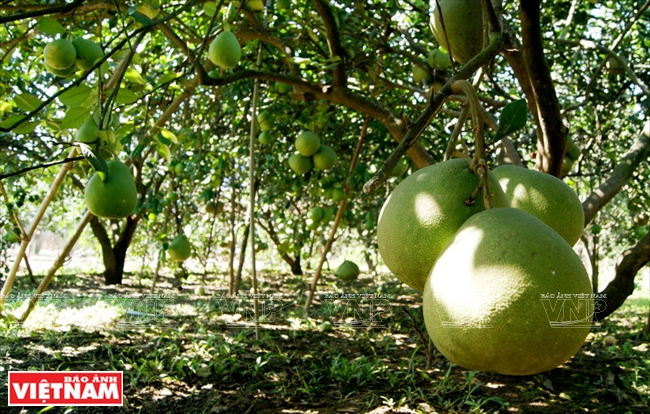
Tan Trieu pomelos are a speciality in the Southern region. Photo: Thong Hai/VNP
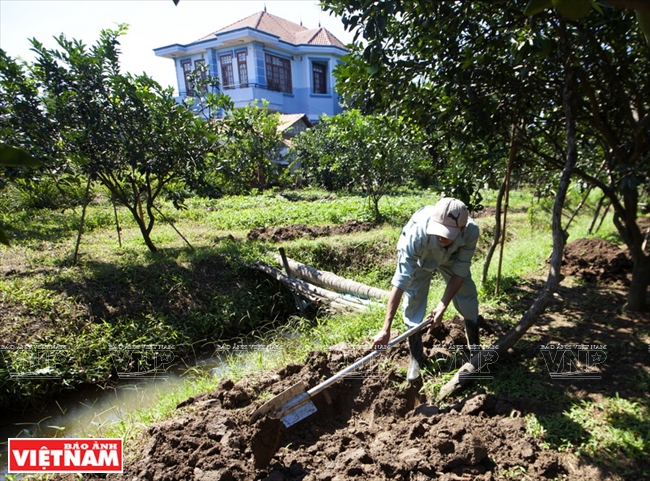
Orange-tasting sweet pomelos and guava-tasting pomelos are suitable to the soil of Tan Trieu.
Photo: Thong Hai/VNP
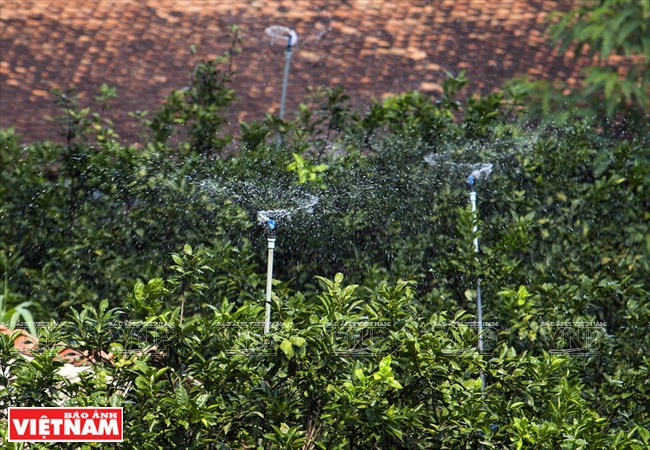
An automatic watering system in a pomelo orchard in Tan Trieu helps farmers reduce expenses.
Photo: Thong Hai/VNP
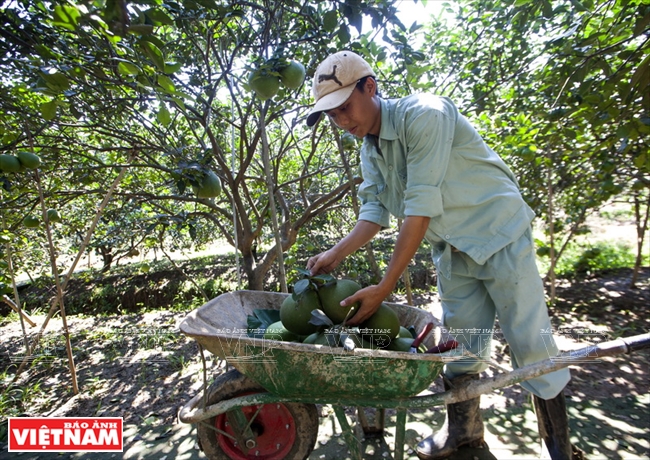
Harvesting pomelos in Tan Trieu. Photo: Thong Hai/VNP
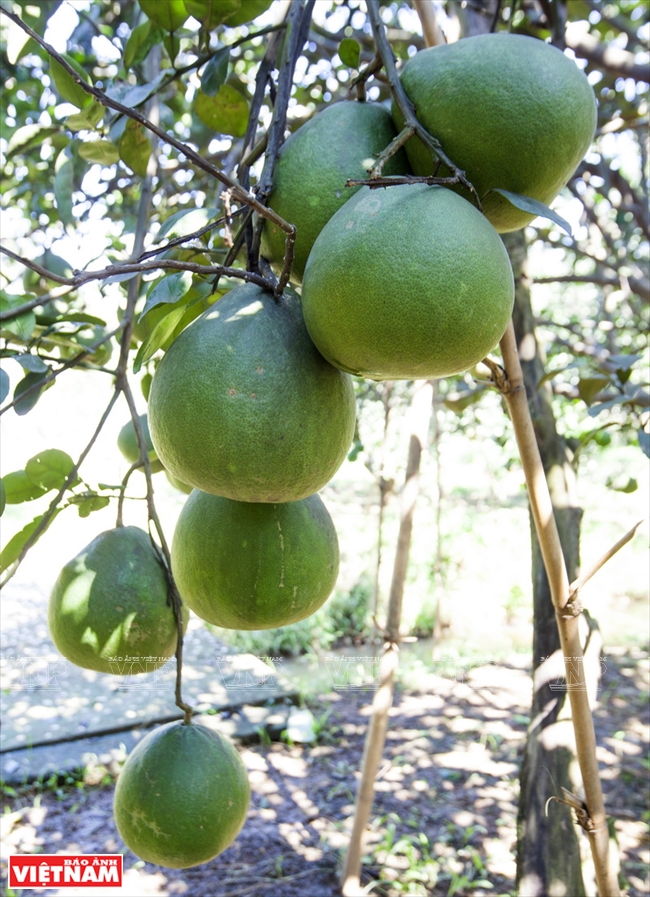
Advanced technology is applied to growing pomelos in Tan Trieu. Photo: Thong Hai/VNP
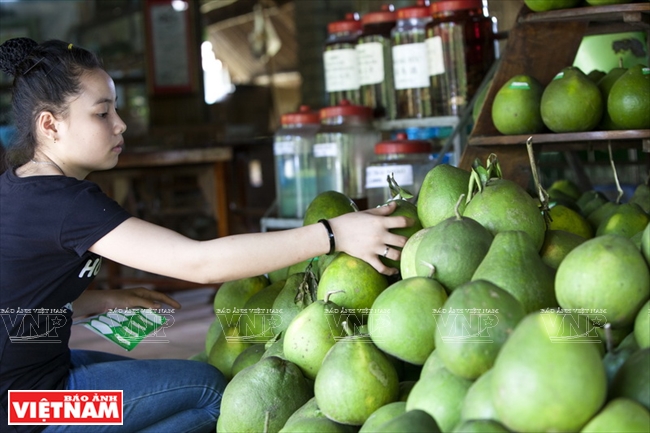
Attaching trademark stamps on Tan Trieu pomelos. Photo: Thong Hai/VNP
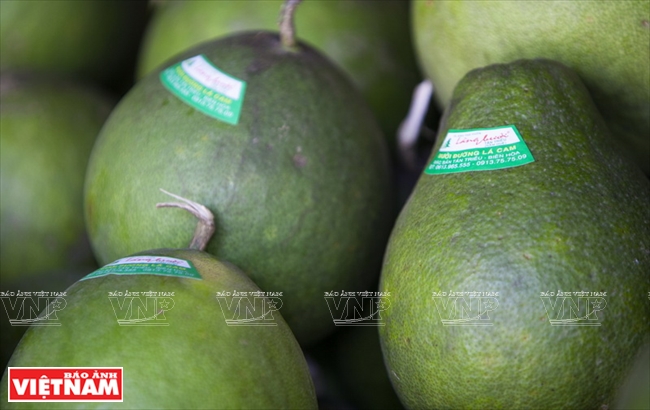
Tan Trieu pomelo is a famous brand both in the country and abroad. Photo: Thong Hai/VNP
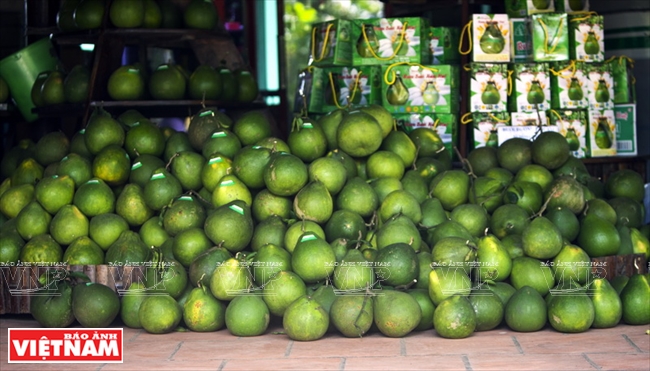
Tan Trieu pomelos are produced according to GAP standards. Photo: Thong Hai/VNP
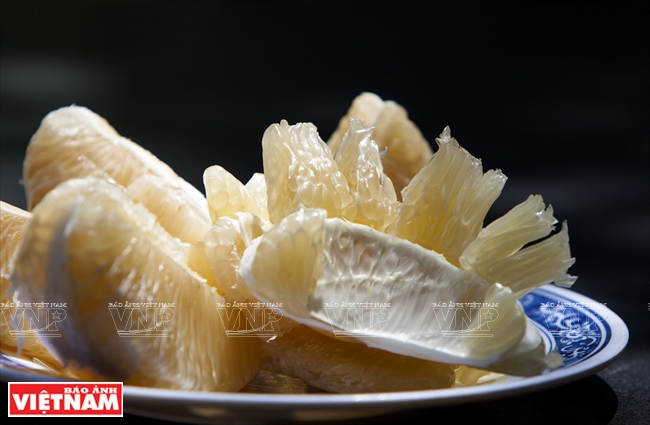
Tan Trieu pomelos have sweet, watery flesh and thin skin. Photo: Thong Hai/VNP
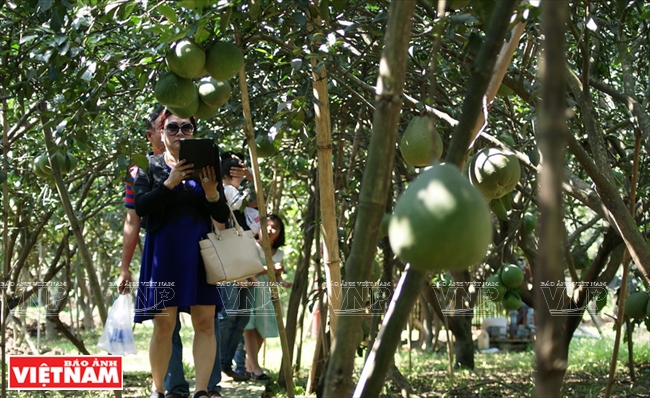
Pomelo orchards in Tan Trieu attract a large number of tourists. Photo: Thong Hai/VNP
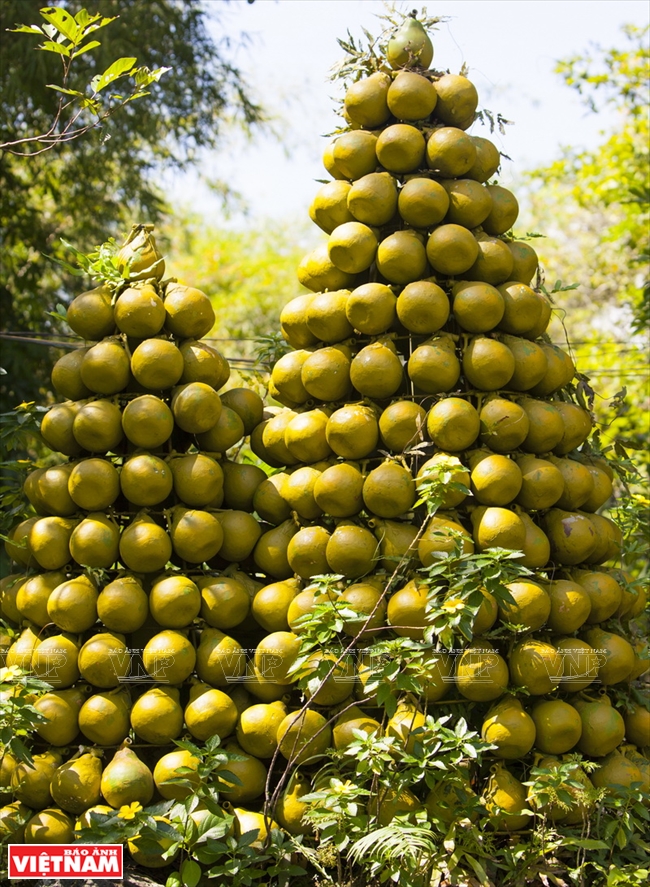
An arrangement of Tan Trieu pomelos in Vinh Cuu District. Photo: Thong Hai/VNP |
|
Dong Nai Province zoned off areas of thousands of hectares which have soil suitable for growing pomelos, like the communes of Binh Hoa,Tan Binh, Binh Loi, Thien Tan and Tan An in Vinh Cuu District. |
In 2006, the Department of Intellectual Property, Ministry of Science and Technology granted a registration certificate of geographical indications for Tan Trieu pomelo which is of great significance in increasing the trademark value and contributing to the competitiveness of this speciality both domestically and internationally.
Furthermore, a cooperative was also founded to help farmers apply science-technology to growing pomelos under GAP standards.
Recently, with a large number of tourists coming to the village, the locals have turned their pomelo orchards into eco-tourism areas, including that of Nam Hue where visitors can have dishes and drinks made from pomelos, such as pomelo wine, pomelo sweetened compote, sugared pomelo, grilled chicken with pomelo and pomelo salad - one of most delicious dishes, which is made by mixing pomelo with boiled shrimp and pork, some basil and other ingredients like chilli, carrots, peanuts and sugar. This dish is best served with griddle cakes and a sour and sweet spicy sauce.
It will surely give tourists an unforgettable experience when visiting the peaceful village with lush green pomelo orchards and enjoying the local specialities from pomelos.